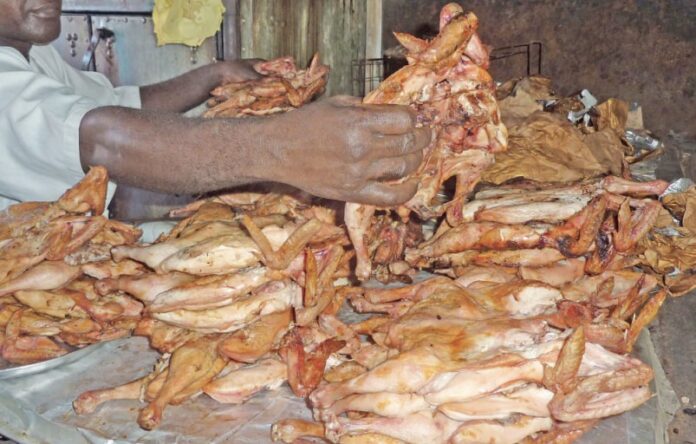According to tests conducted by the University of Nairobi, some chicken meat sold in the Nairobi area has bacteria that is resistant to vital antibiotics.
The high prevalence of multidrug-resistant E coli in Nairobi chicken meat may pose a human health risk from consumption of undercooked meat or unsanitary handling of the contaminated chicken.
E. Coli is found in both human and animal intestines, but when consumed, it can result in a number of illnesses, including pneumonia, UTIs, and diarrhea.
Tino Deng, from UoN’s department of Veterinary Pathology and his colleagues said they tested chicken meat from three different sources: sick birds from a veterinary clinic, farm chickens and chickens from Nairobi’s poultry markets.
They took swabs from the anal openings of the carcasses and tested them for E coli, with subsequent testing to evaluate the bacteria’s resistance to eight commonly used antibiotics: ampicillin, tetracycline, co-trimoxazole, streptomycin, nalidixic acid, amoxicillin, gentamicin and chloramphenicol.
The results are published in the Veterinary Medicine International, in an article titled, “Antimicrobial Resistance Profiles of E coli Isolated From Pooled Samples of Sick, Farm and Market Chickens in Nairobi county, Kenya.”
The researchers note that E coli strains were present in about 31.4 per cent of samples tested, with resistance levels highest among chickens brought in for treatment, followed by farm chickens and then market chickens.
The bacteria showed a stark profile of resistance across several antibiotics.



















